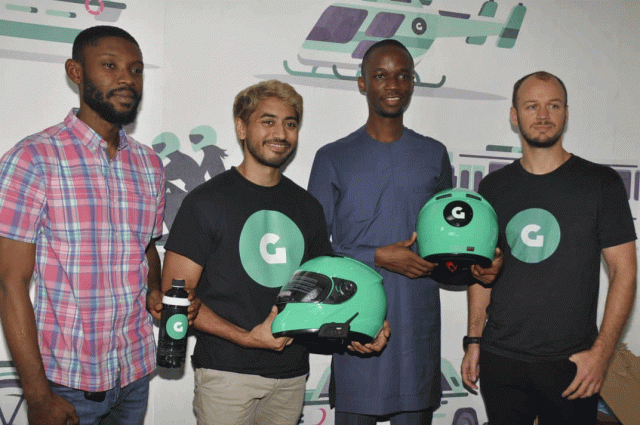Starting a business anywhere in the world is a daunting undertaking.
In the United States and Europe, especially, certain markets are starting to feel saturated. Do American consumers really want another ride-sharing app, besides Uber and Lyft? Could your personal finance app really compete with Venmo or Paypal?
This doesn’t mean you need to give up your dreams of creating a successful business and living the adrenaline-powered entrepreneurial lifestyle.
Read also:https://afrikanheroes.com/2020/02/04/gokadas-ceo-says-governments-decision-is-dream-killer/
Instead, you may just need to look for a market elsewhere in the world.
In developing nations, this type of untapped potential abounds. Consider that your business idea may be one-in-a-million where you live, but one-of-a-kind in a developing nation. And, not only this, but business models that simply would never work in the U.S. or Europe may have great potential elsewhere in the world.
I discovered this firsthand with the motorcycle taxi company I co-founded in Bangladesh.

When I started researching business opportunities in Bangladesh, I wasn’t focused on the motorcycle taxi industry.
I started Pathao in Dhaka, Bangladesh, as an on-demand delivery service back in 2015.
At the time, we were focused on logistics, not transportation. But after meeting an investor who’d had incredible success with motorcycle taxis in Indonesia, we decided to push Pathao in the same direction.
This type of service is popular in many other developing nations, where motorcycles are the easiest way to move quickly through the highly congested cities. And even though Dhaka tops the list of the world’s most highly trafficked cities, we were the first to introduce the model to Bangladesh. For whatever reason, motorcycle taxis just weren’t part of the culture.
I wasn’t sure whether we’d be able to make the case for motorcycle taxis to Bangladeshis.
And it did take some time — at first, people were hesitant to get on the back of a stranger’s motorcycle. It just wasn’t done. But over time, we won people over.
We started with 100 motorcycles and 100 drivers, and now we have a fleet 100,000 freelance taxi drivers with their own bikes. We’ve even seen people buying motorcycles just to work for us, which resulted in a 100% increase in motorcycle sales in Bangladesh after our first two years on the streets.
This has been a major success for me and the Pathao team, but the bigger success is how Pathao has impacted Bangladesh. Tens of thousands of rides are completed through Pathao each day, helping to create a more efficient transportation system, and, ultimately, quality of life.
Instead of crowding the streets with more cars, Bangladeshis are now more likely to rely on ride-sharing services, much like we’re seeing in countries where Uber and Lyft have revolutionized personal transportation.
After seeing Pathao’s success, my team at Adventure Capital and I are developing other motorcycle taxi services in countries like Colombia and Nigeria.

Of course, expanding to first-world countries like the United States or Europe isn’t in the realm of possibilities. Motorcycle taxis wouldn’t work well with our safety laws or with our expansive, large-scale infrastructure. And in the same vein, electric scooter companies — which are being funded by the billions in the U.S. — would never work in Dhaka or Lagos, and for a very simple reason: the roads are too full of potholes.
When I met that influential investor, I had no idea that the motorcycle taxi market existed.
But once I saw how successful Pathao became, I decided to expand and created a similar company in Nigeria — Gokada.
As I’ve learned, one country’s problem can be an entrepreneur’s opportunity. Nigeria’s okadas (their term for motorcycle taxis) faced issues when a law was passed that disallowed bikes under 200cc to travel on major roadways or over bridges. The basis for the law was that okadas had a reputation for driving fast and recklessly. They weren’t seen as a safe option.
Since okadas are all under 200cc, that law created a huge problem for the motorcycle taxi drivers — all 8 million of them.
But at Gokada, we saw this as an opportunity to introduce a fleet of bikes that were over 200cc. That means our bikes can go anywhere, across cities. We train our drivers, and ensure they drive at a pace that’s comfortable for the rider. We’re working hard to change the perception of okadas, so customers know that they’re in good hands when they get on one of our bikes.
After Gokada, I also invested in a Colombian motorcycle taxi service called Picap, which presented its own regulatory challenges.
In Colombia, people don’t think of riding motorcycle taxis as dangerous, at least not in terms of getting into a traffic accident.
The issue, instead, is that there’s a lot of crime associated with motorcycles — most notably, robberies and drive-by assassinations. To fight these crimes, the Colombian government passed a law making it illegal for motorcycles above a given engine size to carry a male passenger over the age of 14 in parts of Bogotá, the country’s capital.
This created a serious challenge for Picap — if they didn’t address the issue somehow, they’d either end up turning away multitudes of customers, or breaking the law.
So Picap created a system that matches up drivers with passengers, based on gender and motorcycle engine size, to make sure every ride is legal.
With Pathao, Gokada, and Picap, we’re offering a form of transportation that wasn’t previously accessible to many. And by doing so, we’ve created not only viable, profitable businesses, but we’ve also introduced a problem-solving product to countries that needed it, as well as employed thousands of people.
So instead of competing with saturated markets in the U.S. and Europe, maybe it’s time to look to developing nations, ripe with opportunity and waiting for entrepreneurial minds to solve life-changing problems.
Fahim Saleh was, until his gruesome murder on Wednesday 15th July, 2020 co-founder of leading Nigerian logistics startup, Gokada. This piece was part of his series on launching his startups in emerging markets.
Charles Rapulu Udoh

Charles Rapulu Udoh is a Lagos-based lawyer who has advised startups across Africa on issues such as startup funding (Venture Capital, Debt financing, private equity, angel investing etc), taxation, strategies, etc. He also has special focus on the protection of business or brands’ intellectual property rights ( such as trademark, patent or design) across Africa and other foreign jurisdictions.
He is well versed on issues of ESG (sustainability), media and entertainment law, corporate finance and governance.
He is also an award-winning writer
